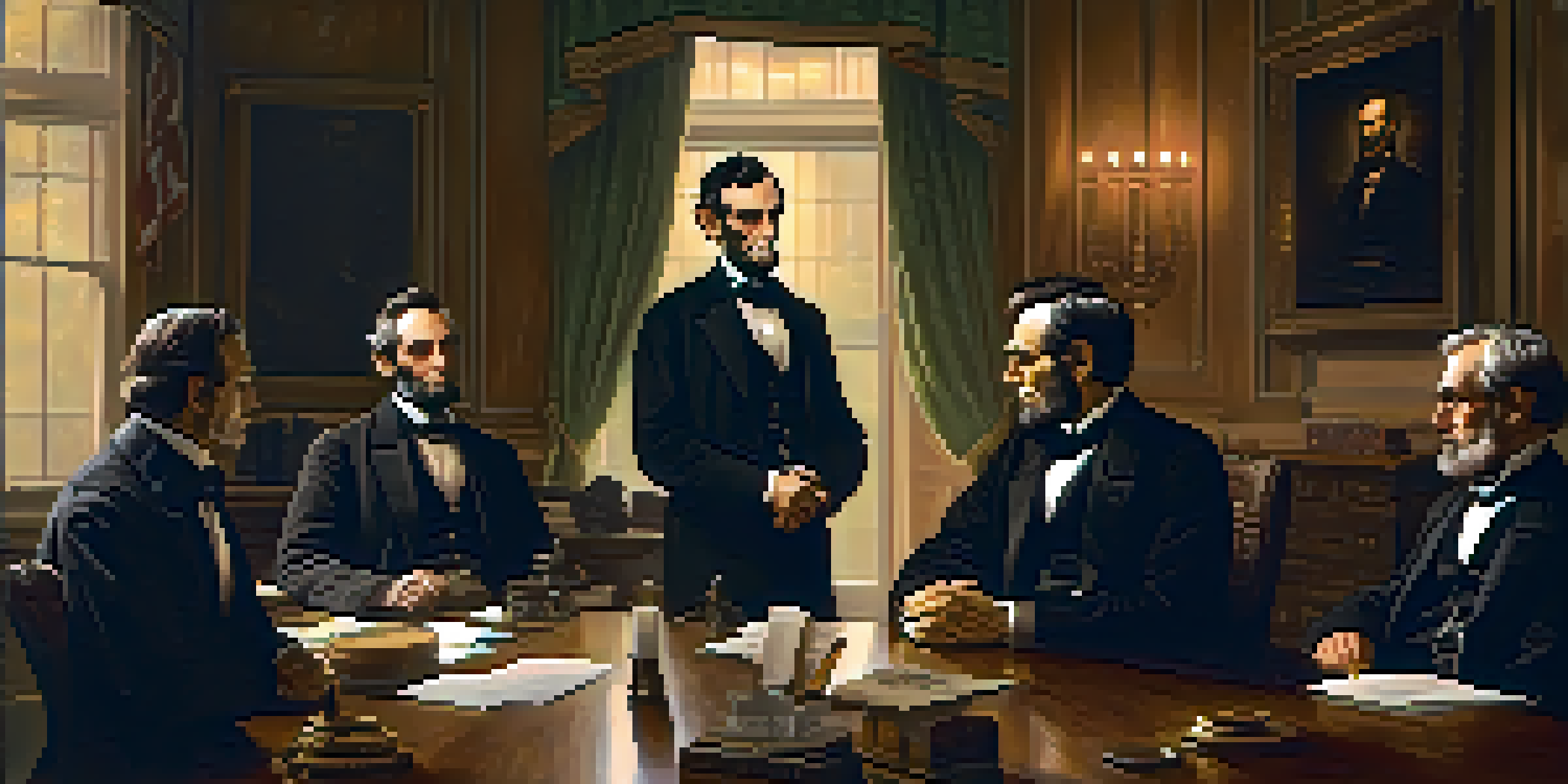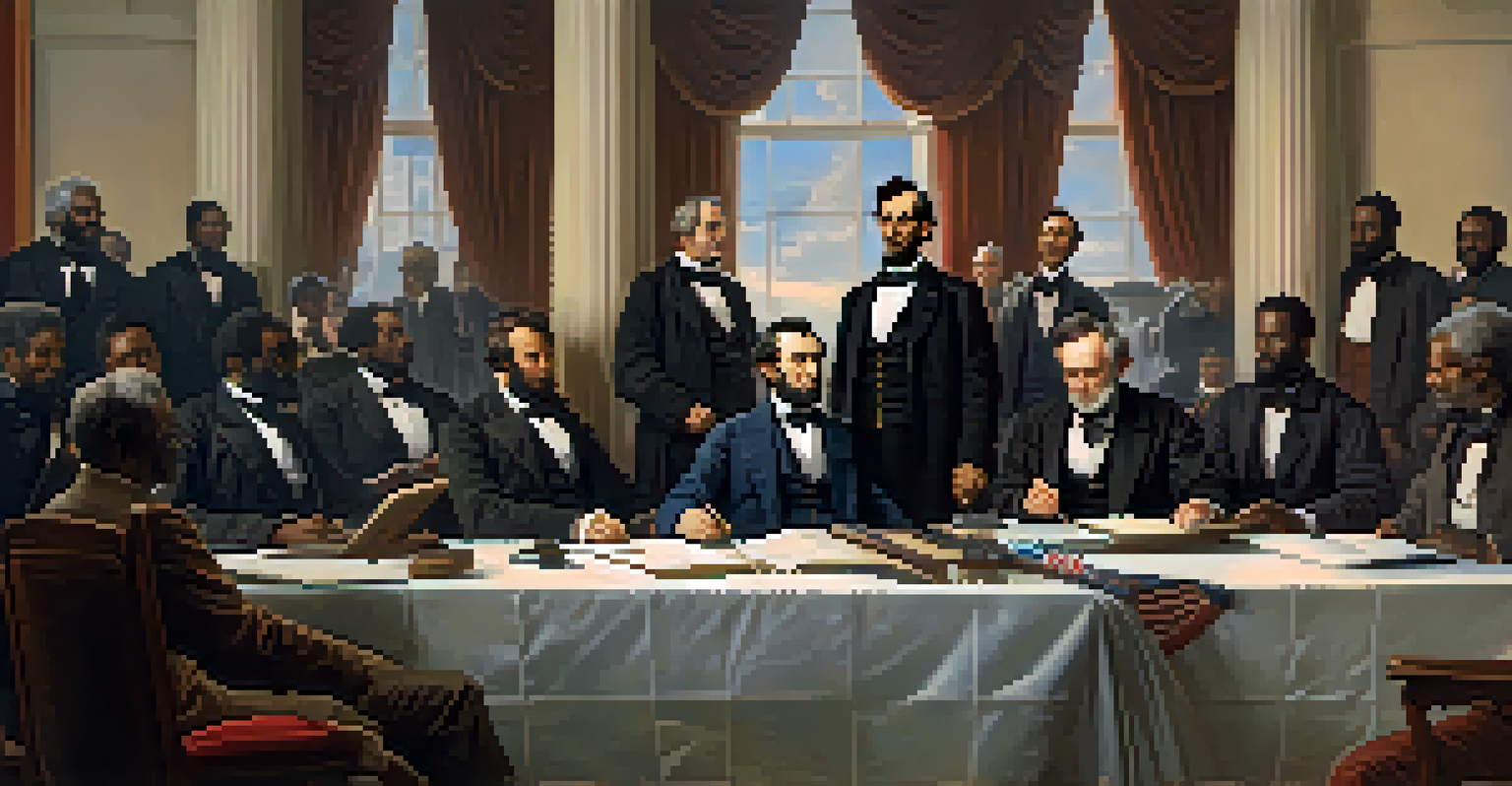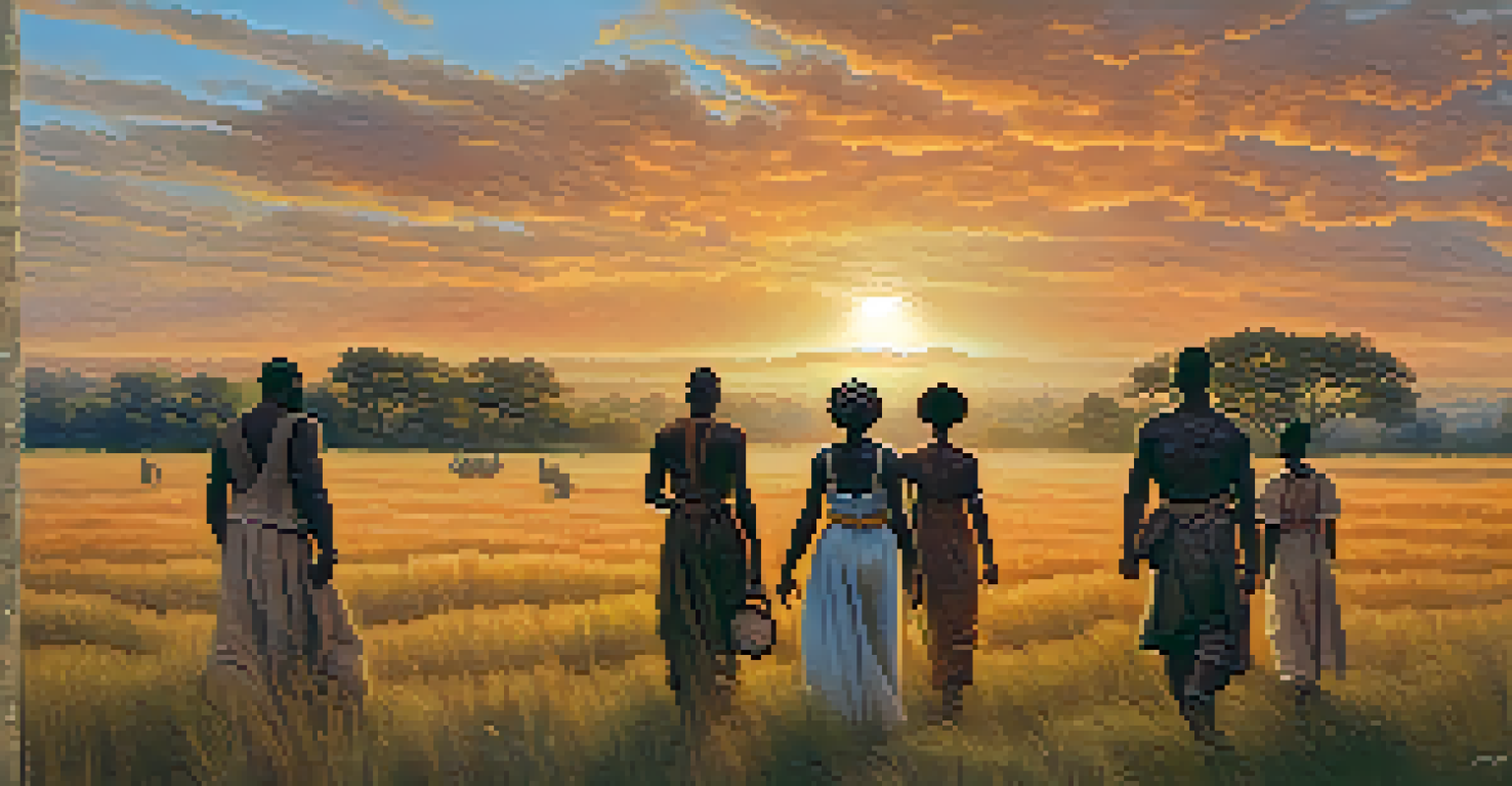Exploring the Historical Accuracy of 'Lincoln' and Its Impact

The Historical Context of Lincoln's Era and Film
The film 'Lincoln,' directed by Steven Spielberg, is set during a pivotal time in American history—the final months of the Civil War. This period was marked by intense political maneuvering and social upheaval, as the nation grappled with issues of slavery and unity. Understanding the context helps viewers appreciate the complexities that Lincoln faced in his quest to pass the 13th Amendment.
Those who deny freedom to others deserve it not for themselves.
While the film primarily focuses on Lincoln's efforts to abolish slavery, it also highlights the broader implications of his leadership during wartime. This historical backdrop enriches the narrative, allowing audiences to see Lincoln not just as a figurehead but as a man navigating the turbulent waters of politics and morality. Spielberg's attention to detail in depicting this time period sets the stage for a deeper exploration of Lincoln's character.
However, it's important to recognize that while the film strives for authenticity, certain dramatic liberties are taken to enhance the storytelling. This blend of fact and fiction invites viewers to engage with history, but it also raises questions about how accurately these events are represented.
Key Historical Figures Portrayed in 'Lincoln'
'Lincoln' introduces several pivotal figures from history, including Thaddeus Stevens and William Seward, who played significant roles in the push for the 13th Amendment. The film presents Stevens as a passionate advocate for abolition, showcasing his fierce dedication to the cause. This portrayal aligns with historical accounts, although some nuances of his personality are dramatized for effect.

William Seward, Lincoln's Secretary of State, is depicted as a shrewd political strategist who understands the importance of compromise. His interactions with Lincoln illustrate the delicate balance of power and persuasion that characterized the political landscape of the time. While the film captures the essence of these relationships, some critics argue that it simplifies their complexities.
Historical Context Enhances Understanding
The film 'Lincoln' provides a rich backdrop of the Civil War era, helping viewers grasp the complexities of Lincoln's leadership in passing the 13th Amendment.
Overall, the representation of these historical figures adds depth to the narrative, allowing audiences to witness the collaborative efforts required to achieve monumental change. Yet, as with any historical dramatization, viewers should be aware of the artistic interpretations that may not fully encompass the individuals' true experiences.
The Role of Slavery in 'Lincoln' and Historical Accuracy
A central theme in 'Lincoln' is the fight against slavery, which the film highlights through powerful dialogue and poignant scenes. The depiction of the 13th Amendment serves as a focal point, illustrating the moral imperative behind abolition. The film effectively captures the urgency of this issue, reflecting the sentiments of many Americans at the time.
The best way to predict your future is to create it.
However, some historians argue that the film glosses over the brutality and complexity of slavery itself. While the emotional weight of Lincoln's mission is palpable, the experiences of enslaved people are not given sufficient attention. This omission can lead to a skewed understanding of the historical context surrounding the amendment.
By presenting a narrative that prioritizes Lincoln's political struggles, 'Lincoln' invites viewers to consider the broader implications of emancipation. Yet, it's crucial for audiences to seek a more comprehensive understanding of slavery's impact to fully grasp the significance of the events portrayed.
Artistic Liberties Taken in 'Lincoln'
As with many historical films, 'Lincoln' takes certain artistic liberties to enhance its narrative. For example, some scenes are dramatized to create emotional resonance, even if they didn't occur exactly as portrayed. This approach can make history more engaging but also risks misinforming viewers about the actual events.
One notable instance is the portrayal of Lincoln's conversations with his cabinet, which are depicted as intense negotiations filled with tension. While these discussions likely did occur, the film's specific dialogue is largely fictionalized. This technique helps to illustrate the stakes involved but may lead audiences to believe these exchanges were more dramatic than they were.
Artistic Liberties Impact Perception
While 'Lincoln' creatively dramatizes historical events for engagement, it challenges audiences to discern between fact and fiction.
Ultimately, while artistic licenses can enrich storytelling, they also challenge viewers to differentiate between fact and fiction. It’s essential for audiences to approach such films with a critical eye, recognizing where filmmakers have chosen to embellish the truth for narrative effect.
Audience Reception and Impact of 'Lincoln'
'Lincoln' received critical acclaim upon its release, praised for its performances, particularly Daniel Day-Lewis's portrayal of the titular character. Audiences were drawn to the film's emotional depth and the historical significance of its subject matter. The film sparked conversations about Lincoln's legacy and the ongoing relevance of his ideals in contemporary society.
The film's emphasis on political maneuvering and moral dilemmas resonated with viewers, prompting discussions about leadership and ethics in government. Many found themselves reflecting on how Lincoln's struggles mirrored challenges faced in modern politics, making the film not just a historical account but a commentary on current issues.
Furthermore, 'Lincoln' has reignited interest in American history, inspiring viewers to explore the Civil War and its aftermath more deeply. By presenting a nuanced portrayal of a complex figure, the film encourages audiences to engage with the past and consider its implications for the future.
Educational Value of 'Lincoln' for History Students
'Lincoln' serves as a valuable educational tool for students studying American history, offering a cinematic glimpse into a crucial period. The film can spark interest in topics like the Civil War, the abolition of slavery, and the intricate political landscape of the 1860s. Educators can use it to complement traditional teaching methods and foster discussions about historical interpretation.
By watching the film, students can analyze the motivations and decisions of historical figures, encouraging critical thinking about leadership and morality. This engagement with history can lead to deeper discussions about the implications of Lincoln's actions and the broader societal changes that followed.
Educational Tool for History Students
'Lincoln' serves as an effective educational resource, inspiring students to explore the intricacies of American history while promoting critical analysis.
However, it's essential for educators to guide students in distinguishing between dramatized elements and historical facts. Supplementing the film with primary sources and scholarly analysis can enrich students' understanding and promote a more comprehensive view of the era.
Conclusion: The Lasting Legacy of 'Lincoln'
In conclusion, 'Lincoln' stands as a significant cinematic portrayal of a transformative era in American history. Its exploration of political intrigue, moral dilemmas, and the fight for equality resonates with audiences, prompting reflection on the ongoing struggle for civil rights. While the film takes artistic liberties, it successfully captures the essence of Lincoln's leadership.
The film's impact extends beyond its initial release, influencing how we view Lincoln and his contributions to American society. As discussions about race, equality, and justice continue, the themes presented in 'Lincoln' remain relevant, reminding us of the historical battles fought for the rights we hold today.

Ultimately, 'Lincoln' encourages viewers to engage with history actively and consider the lessons it imparts for our present and future. By navigating the balance between accuracy and storytelling, the film invites us to remember the past while striving for a more equitable world.